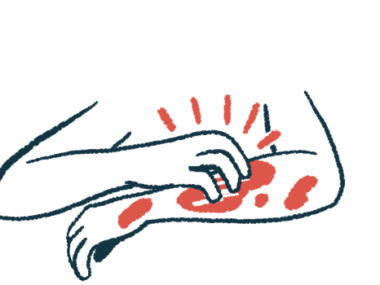Filsuvez, Topical Gel for EB Wounds, Under FDA Priority Review
Written by |

The U.S. Food and Drug Administration (FDA) will give priority review to Amryt Pharma’s application seeking approval of Filsuvez (Oleogel-S10), a topical gel to treat skin wounds in people epidermolysis bullosa (EB).
A final decision by the agency is expected by Nov. 30, according to the announced Prescription Drug User Fee Act (PDUFA) action date.
Priority review is given by the FDA to treatment candidates for serious conditions that show the potential for significant benefits over currently available options. It shortens the regulatory review period to six months from the standard 10 months.
“We are very pleased that the FDA has confirmed priority review of our NDA for Oleogel-S10 [Filsuvez]. Confirmation of a target PDUFA date of November 30, 2021 keeps us on track for a potential approval this year,” Joe Wiley, CEO of Amryt, said in a press release.
“If approved, Oleogel-S10 could potentially be an important treatment option for patients suffering from EB, a serious and debilitating disease for which there are currently no approved treatments and our launch plans for Oleogel-S10 are well advanced,” he added.
Filsuvez is a gel applied to the skin, composed of an extract from birch tree bark and rich in betulin. Evidence suggests that betulin can activate skin cells and regulate the inflammatory response involved in wound healing.
The company’s FDA application — and a similar request filed with the European Medicines Agency — is supported by positive data from the Phase 3 EASE trial (NCT03068780) comparing the effectiveness and safety of Filsuvez in wound healing against a placebo gel.
The trial enrolled 156 children and 67 adults with junctional EB, dystrophic EB, or Kindler syndrome, who had an EB partial thickness wound between 10 and 50 square centimeters in size for at least three weeks, but less than nine months.
Results showed that Filsuvez increased the probability of complete wound closure, while reducing the time wounds take to heal in treated patients. Within 45 days of starting the treatment, 41.3% of patients given Filsuvez had first complete closure of a target wound, compared to 28.9% of those assigned to a placebo gel, a statistically significant difference and the trial’s main goal.
Filsuvez was previously granted fast track and rare pediatric disease designations by the FDA.





